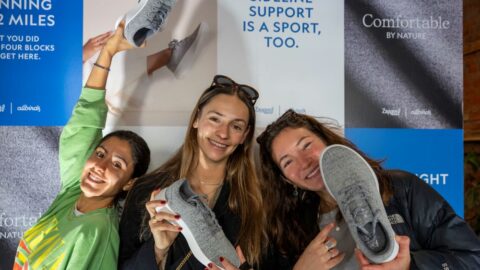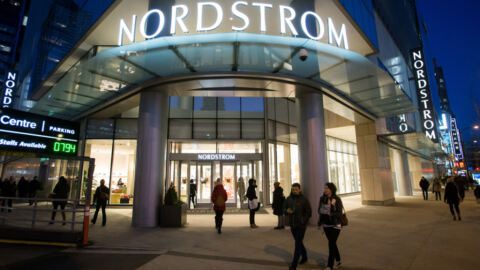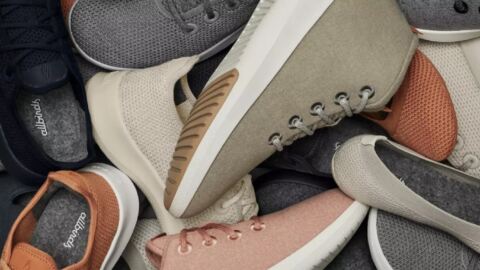Allbirds is planning to open 20 stores in 2019, bringing its global footprint to 35. The new locations will include shops in Dallas and Austin, Texas; San Diego; Washington, D.C.; Minneapolis; Philadelphia; Denver; Atlanta; Miami; Portland, Ore.; and a second New York City store.
The company has embraced the natural, “un-designed” look of its shoes in the minimalist design of its stores. For instance, the retailer’s New York City flagship has only a handful of shoes on display, organized by style (skippers, loungers, runners or flip-flops called “zeffers”) and material (wool, trees or sugarcane). Allbirds also includes details of where and how the shoes are made to emphasize the sustainability of their practices.
“We’re in a competitive space in footwear but, look, there’s 20 billion pairs of shoes made a year on average and we’re still very tiny,” said Brown in an interview with CNBC. “We’ve got enormous potential to grow and continue to grow, but to do that we’re going to have to continue to innovate and continue to be good. The retail expansion is part of it, as is international, but at the core for us, it’s about product and it’s about material innovation.”
However, the long-term benefits of pure play retailers expanding into brick-and-mortar remain to be seen. A study by Blis tracked unique shoppers’ activity with eight digital native companies over a three-month period. A majority, 80%, shopped one of the eight digital natives during only one out of the three months. Only 13% shopped in two out of the three months, while 8% entered the stores every month. These customer retention challenges could make brick-and-mortar stores a costly investment for pure play retailers.
For its part, Allbirds noted that all of its existing U.S. stores reached profitability within their first two months of opening.












